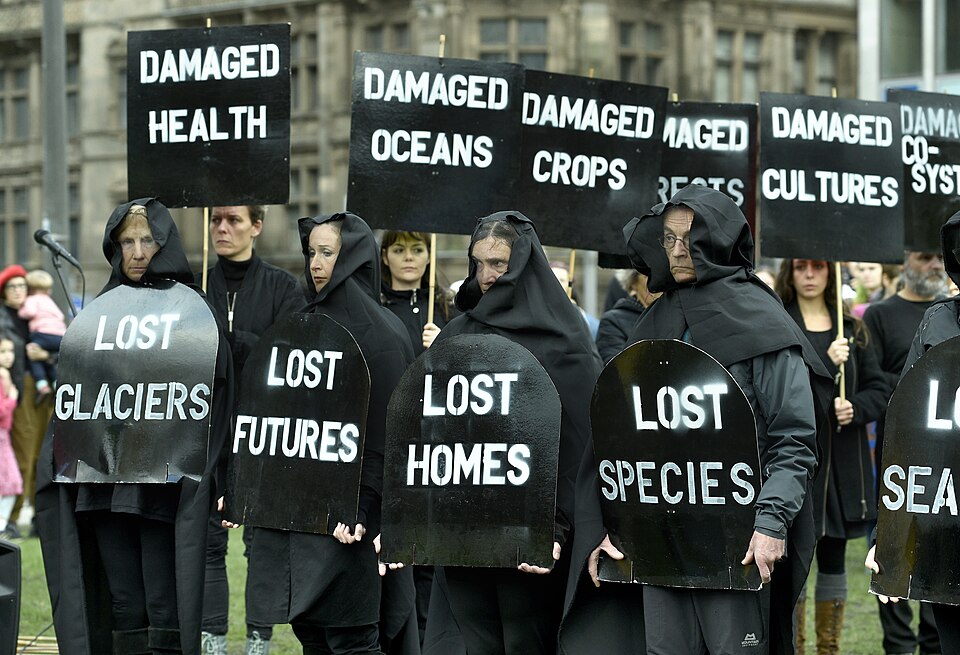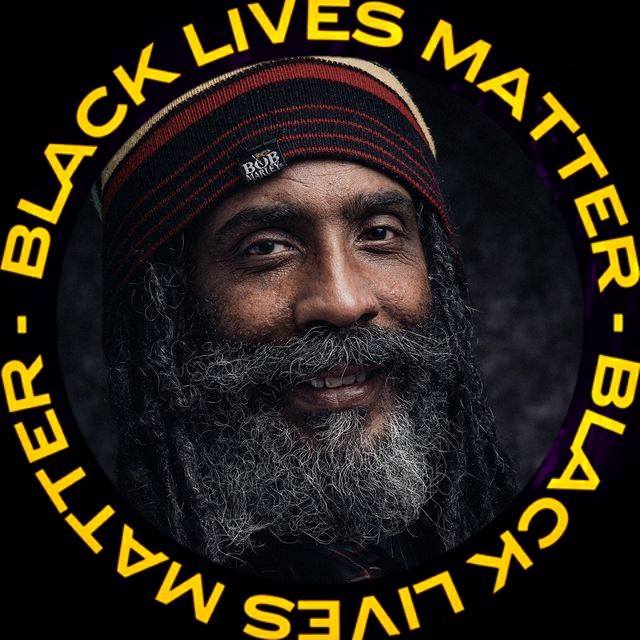Paul Rodgers is Emeritus Professor of Peace Studies at the University of Bradford. This article condenses arguments developed in The Insecurity Trap: A Short Guide to Transformation.
More than fifty years ago, the economic geographer Edwin Brooks warned of the risk of a “crowded glowering planet of massive inequalities of wealth buttressed by stark force yet endlessly threated by desperate men in the global ghettoes of the underprivileged”. It was thoroughly dystopian then but all too believable now.There are many global challenges to be faced, some of them pointing in the direction of Brooks’s feared world. They include the risk of nuclear war, pandemics and misuse of nanotechnologies and AI, but three stand out as long-term trends – climate breakdown, increased militarisation and the wealth-poverty divide with its associated mass marginalisation.
While each is a major challenge there are positive responses to hand that can help ensure a more peaceful world, but the three trends interact to make this difficult. These need to be recognised as we work for positive change. What should be done can be summarised in three questions:
Can we come to terms with environmental limits to growth in time?
Can we transform the economy to ensure that there is far better sharing of what we have?
Can we change our understanding and practice of international security to focus on a human security approach that works for all, not a minority elite?
Environment
On the issue of environmental limits to growth, the main challenge is global heating and the consequent risk of climate breakdown but there is some cause for cautious optimism. Compared with a couple of decades ago, public awareness of the dangers is greater, climate modelling is far more accurate, and the actual experience of climate disasters has grown substantially. Perhaps more significant is that the cost of moving from fossil carbon energy sources to renewables has plummeted, making the prospect of rapid decarbonisation much more feasible. While there is intensive counter-lobbying from the fossil-carbon industries and wider opposition from right-wing politicians, time is not on their side. As costs fall, even the market fundamentalist system with its insistence on the neoliberal approach will be sidelined.
Yet time is short and overcoming the current opposition to climate action will be a tough call with powerful political forces steadfastly opposed to action. Even so, it is still possible to make the changes, and they will be catalysed by the impacts of local and regional climate disasters.
Economy
While transforming economies is essential because of the cooperation needed to prevent climate breakdown, it is also necessary because the neoliberal system is itself an economic model that is not fit for purpose. It evolved principally in the late 1940s and the work of the Mont Pelerin Society, got a huge boost with the oil market disasters of the early 1970s and later took root in western countries, notably the US under Reagan and the UK under Thatcher.
A further boost came with the collapse of the Soviet Union and its alternative economic system at the start of the 1990s. Neoliberalism is highly competitive and involves wide-ranging tax incentives for the wealthy, coupled with financial deregulation and the privatisation of state enterprises and assets. Trade unions are regarded with deep suspicion and may have tight legal controls intended to limit their effectiveness. The neoliberal model may produce economic growth but inevitably leads to winners and losers, the latter being marginalised even when in the majority.
Neoliberal supporters argue that some wealth will trickle down to all levels of society and will serve to limit antagonism to the system, but that merely disguises the rotten nature of the whole model. That model has produced huge divisions in global wealth and poverty, with close to 3,000 dollar-billionaires worldwide while hundreds of millions of people are in deep poverty. Even in states such as the UK, there are deep divisions, after all, why should the sixth-richest state in the world even need food banks? When it comes to climate action the huge problem we face is that the neoliberal belief in the necessity of a free market militates directly against action.
Free markets essentially operate in the short-term and supporters want small government that liberate markets. This is directly against the need for action on climate change. Radical decarbonisation of economies needs to be undertaken decades before the full impact of climate breakdown manifests itself. The limited progress now unfolding is welcome, but it should have been well under way in the 1990s. This now needs to be hugely accelerated over the next decade if we are to avoid the climate disasters that otherwise lie ahead.
Security
The final factor to recognise is the issue of international security, with the military systems of most states made up of integrated military industrial complexes. These are powerful and influential lobbies comprising the military, civil servants, defence corporations, security and intelligence services, think tanks and university departments. There is frequent interchange; for example, a common feature is for senior military and civil servants to benefit when they retire from lucrative consultancies with defence corporations. Military industrial complexes assess threats primarily in terms of the security risks from other states and from non-state actors, and they respond within a state-centred culture rather than a human security approach. When it comes to climate issues the culture sees the issue of protecting the state from the consequences of climate disasters rather than preventing climate breakdown in the first place. The task is to defend the realm rather than to advocate decarbonising the economy.
Meanwhile, military budgets absorb vast sums of money in an industry where cost controls are singularly weak and corruption is persistent, especially in the international arms trade.
Interaction and response
When it comes to climate issues, the interaction between environment, economy and security is deeply embedded. Marginalisation and climate change are among the most powerful causes of migration and will become even more so in an era of catastrophic climate events such as prolonged drought.
Yet such population movements are frequently seen as threats, especially when populist politicians use them to stir up antagonisms for their own political purposes. Crop failure and food shortages will commonly have a much greater impact on marginalised and impoverished communities where there are not the reserves needed to survive those shortages. High spending on the military when it has little or no impact on climate issues is money wasted when the need is great. Above all, the neoliberal economic system rarely even recognises climate breakdown as an issue to be addressed. Instead, it dismisses it as a problem.
Because of this, responding to arguably the greatest challenge facing the global community means recognising the interconnections. Climate breakdown, the rich/poor divide and militarisation are all challenges in their own right but the interconnections mean that progress in one area may also have a positive impact on progress in another. Recognising that means that dedicated individuals in any of the areas can see themselves as part of a much wider community, a worthwhile attitude at a time when a sense of isolation is all too common.
Image Credit: Friends of the Earth Scotland from Scotland, CC BY 2.0 https://creativecommons.org/licenses/by/2.0, via Wikimedia Commons



